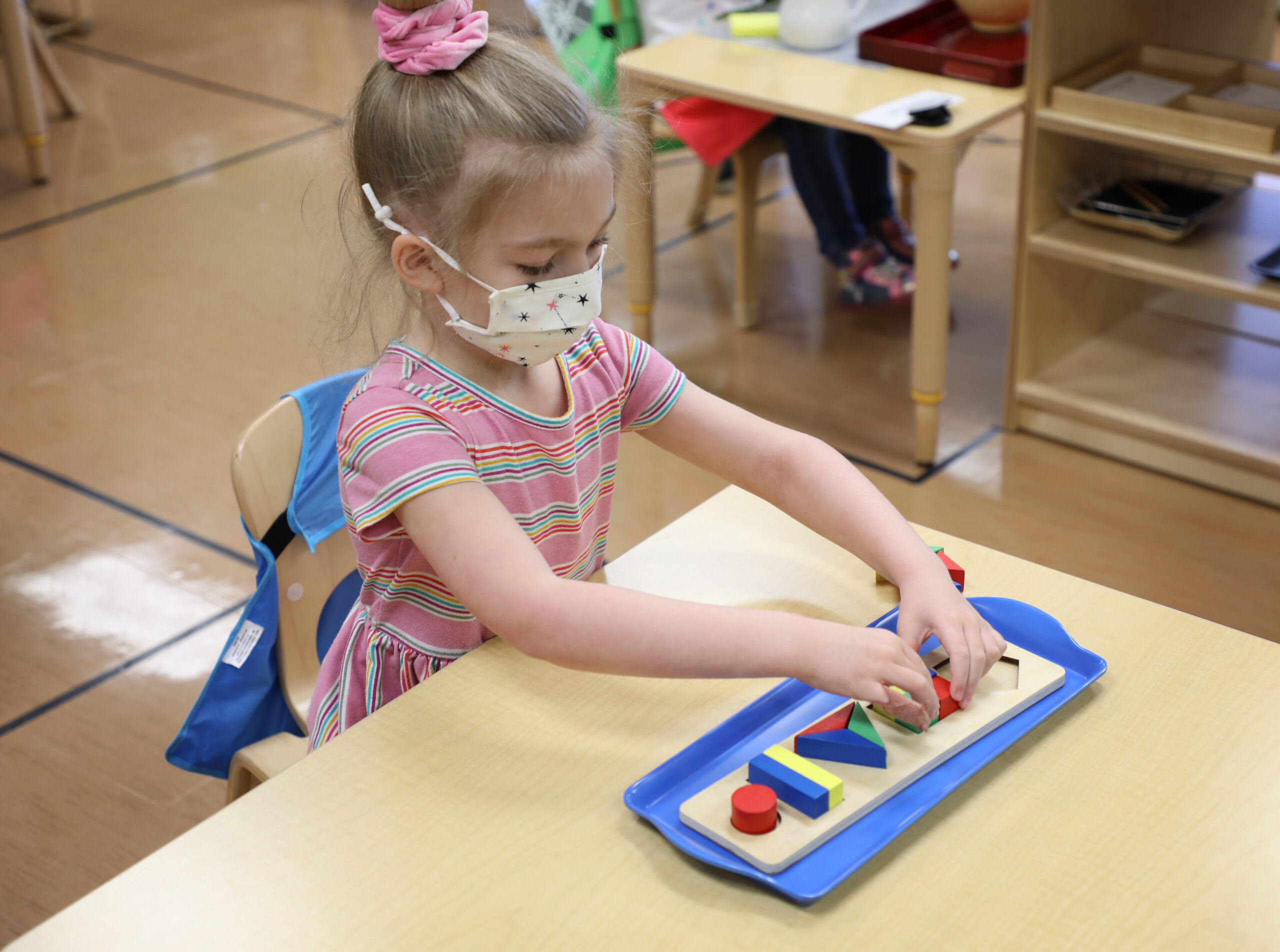How do you know when a child is ready for Kindergarten?
The following list contains many skills and behaviors that children who are ready for kindergarten are able to do. Even most children who ARE ready for kindergarten do not do all of these all the time. We hope you find it a helpful way to think about the categories of behaviors that lead to success in kindergarten. As you know, young children mature at all different rates and the child you see today may mature into a full-fledged kindergartener by the time the school year begins. Visit our school database to learn more about your options.

- Recognizes at least 10 letters of the alphabet (can point to a letter when presented out of sequence)
- Writes a few letters of their name and recognizes their name in print
- Uses direction and position words when speaking (up, down, near, and by)
- Notices familiar words and signs (STOP sign, grocery store, logos)
- Says whether or not two words rhyme
- Shows interest in books and being read to
- Speaks in full sentences
- Answers who, what, when, where and how questions (“Where are your shoes?”, “What did you draw?”)
- Follows 2 step directions (“Please put on your jacket and go stand by the door.”)
- Counts 10 or more objects
- Recognizes primary shapes (can point to a circle, triangle, square, and rectangle)
- Is curious and motivated to learn (tries new activities and asks questions)
- Recognizes basic colors (can point to red, green, orange, blue, black, purple, brown, yellow)
- Matches and sorts objects by shape, size, or color (can put all blue toys in a pile)
- Uses pencils, crayons, and markers for drawing
- Cuts with scissors (can cut a paper in half)
- Runs, jumps, hops, throws, and kicks
- Uses the bathroom on their own
- Knows their first and last name and age
- Follows basic safety rules
- Plays cooperatively with other children (takes turns and resolves problems)
- Uses words to express feelings, “I feel angry”, “I feel happy”
- Expresses feelings and ideas in a variety of ways (drawing, pretend play, music, etc.)
- Regulates emotions and behavior (can calm down, can be patient, can adjust to new situations)
- Expresses empathy or caring for others (comforts a friend who is crying)
- Is active for an hour or more every day (running, playing with a ball, etc.)
- Gets about 10 hours of sleep every night
- Eats healthy food (like fruits and vegetables) and drinks water every day
- Goes to regular doctor appointments and is up-to-date on immunizations
- Has been to a dentist and brushes teeth every day
Kindergarten Readiness PDF